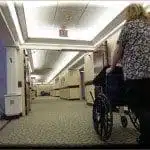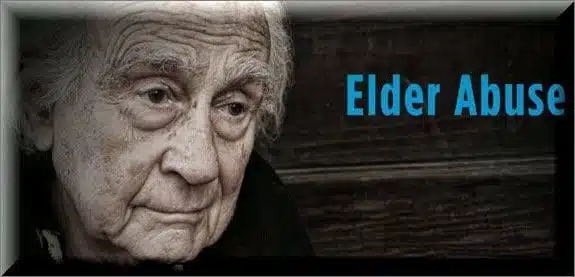Are Granny Cams Legal In New York?
Posted in Granny Cams
Granny Cams have substantiated claims of abuse in nursing homes across the country, however, they do bring up important legal questions every family should consider.

At SelectCare Home Care Services of NY, we consider the safety and well-being of our clients to be our top priority. Through our stringent hiring requirements, constant communication with our caregivers and continued education through our in-service programs, we work tirelessly to ensure that our clients receive the best, most transparent care possible.
Unfortunately, anyone who keeps up with the news knows that elder abuse – be it in an assisted living facility, nursing home or the victim’s home – is a real problem that impacts thousands of lives every year.

A 2011 study conducted by the The New York State Coalition on Elder Abuse found that of the as many as 76 of every 1,000 New Yorkers 60 or older had experienced some form of abuse, be it financial, physical, sexual, emotional, or cases of caregiver neglect. More alarmingly, this study found that for every case of abuse documented by the authorities, there are as many as 23.5 cases that go unreported.
These numbers are undoubtedly troubling for elderly New Yorkers and their loved ones, but the question remains: What can you do to protect yourself or an older loved one from abuse?
We all want to be there for our loved ones when they need it most, but not everyone has the opportunity to check in with their family members every day – this is especially true of long distance caregivers. Our previous post about long distance caregiving emphasized having trusted neighbors or friends living nearby who can provide periodic check-ins, but these visits are only of value if that contact knows to look for signs of abuse.
What is a Granny Cam?
Simply put, a Granny Cam is a discreet camera, usually hidden in some household object, that can record long stretches of footage and store that data either on an internal memory card, or transmit that footage online. Many models are motion sensored and some also include audio recording options.
While these devices cannot stop abuse on their own, they are a great way to provide an objective view into your love one’s living situation, and can provide irrefutable evidence of wrongdoing if abuse is in fact taking place.
Cameras have become extremely inexpensive, with basic models capable of recording 24 hours of audio and video footage costing less than $200.
Granny Cam Ethics
If you believe a loved one is being abused by a family member or other caregiver, there are some things to consider before investing in a camera:
What is the legality of installing a surveillance camera in your state? Unfortunately, every state has a different stance on this issue, including whether both parties (the client and caregiver) must consent to being recorded, whether you are allowed to record audio as well as video, and whether or not you must post visible warnings to others that there is a camera present.
The best way to answer this question is to speak to your state’s Long Term Care Ombudsman to learn what is permissible in your state.
Consider the privacy of your loved one’s neighbors. Many assisted living facilities and nursing homes offer shared rooms, usually with two patients per room. It’s important to respect the privacy of your loved one’s roommate. You should always speak to them or their patient representative before installing a camera.
Consider the privacy of your loved one. Remember, a camera placed in a room will record EVERYTHING, not just instances of abuse. It’s very important that the decision to install a camera be one that you and your loved one reach together. If you are truly concerned that there is abuse, and your loved one is hesitant to give up their privacy, it might be helpful to invite your loved one’s doctor or social worker into the conversation to weigh in.
Consider the privacy of your loved one’s caregivers. Imagine if you found out you were secretly being recorded while at work. Although you might not be doing anything wrong, you would probably take some issue with whoever decided to install a camera in your office. It’s important to remember that respect works both ways and that the vast majority of caregivers are compassionate, hardworking people. To that end, it’s not unreasonable to let a caregiver know that they may be recorded, with an explanation that the device will not only identify abusers, but can also exonerate caregivers who might be wrongly accused of abuse.
Are Granny Cams Legal For Home Caregiving?
While every state takes its own approach to the legality of secret cameras in assisted living facilities and nursing homes, all fifty states agree on one thing: You are always allowed to record within your own home.
To that end, Granny Cams are a great way to provide oversight if your loved one is receiving home care or similar in-home services.
At SelectCare, we understand that inviting a caregiver into your home requires trust, especially if you are new to this type of elder care, and a hidden camera is a great way to ensure that you are working with a reputable agency. In short, fear of the unknown or a lack of transparency should never be a barrier to your loved one receiving the care that they deserve.
Are Granny Cams Legal In Elder Care Facilities?
While in-home recording is always legal, the issue becomes particularly murky when brought into assisted living and nursing home facilities.
New York State Attorney General Eliot Spitzer made headlines in 2006 when he revealed hidden camera footage of rampant elder abuse in a pair of upstate nursing home facilities. Unfortunately, the law is unclear on whether patients and their families can install cameras of their own.
Federal laws do not expressly say whether hidden cameras are allowed in nursing homes. Federal wiretapping guidelines discourage recording audio and video footage without the consent of all parties involved, however these laws largely ignore silent surveillance footage.
Because of the vagueness of these statutes, it is recommended that concerned families seek an elder care attorney if they suspect abuse, as a way to safely review their opportunities to legally document mistreatment.
Fortunately, some state lawmakers are beginning to address this growing question: It is currently legal to install granny cams in nursing home facilities in Oklahoma, Washington, Texas, New Mexico and Illinois. In these states, relatives can install a camera that they control, provided they alert the facility, receive approval from their loved one, and provide notices to caregivers that a camera is present.
In the name of patient safety, we at SelectCare hope that this trend towards transparency continues across the country.
The prevalence of elder abuse in America is a sad reality that the public is only now beginning to acknowledge. As we move forward in addressing this issue, we hope that lawmakers recognize the severity of this problem, the need for independent oversight by family members and the rights of caregivers working in facilities.
We hope that you found this post informative and encourage any family with questions or concerns to call our office and talk to one of our home health care experts, who stand ready to provide your loved one with the safe, reliable in-home care that they deserve.
